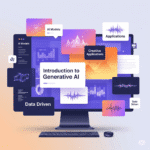The world is witnessing a significant power shift in the realm of artificial intelligence (AI) as China releases its AI action plan, mere days after the United States unveiled its low-regulation strategy. This development has far-reaching implications for global AI governance, data privacy, and the competitiveness of nations.
China’s AI Ambition: A Global Power Shift
China’s AI action plan, announced at the World AI Conference (WAIC) in Shanghai, underscores the country’s commitment to becoming a key player in AI development, alongside the United States and European Union. The plan emphasizes the importance of open-source development and governance, as well as cooperation between countries to establish a unified AI framework. This move is seen as a direct response to the US low-regulation strategy, which aims to remove red tape and onerous regulation to accelerate AI development in the private sector.
US Low-Regulation Strategy: A Double-Edged Sword
The US low-regulation strategy, announced by President Donald Trump, is designed to promote American tech innovation and cement the country’s position as a global leader in AI. However, critics argue that this approach could undermine US national security, compromise data privacy, and perpetuate misinformation and bias. The strategy’s focus on deregulation may also enable Chinese chipmaker Huawei to gain greater control over the global computing power supply chain, thereby ceding the United States’ greatest point of leverage in AI.
Global Concerns and Fragmented Governance
As countries around the world grapple with the challenges and opportunities presented by AI, global concerns about data privacy, misinformation, and bias are increasing. The lack of a unified AI governance framework is a significant challenge, with countries having different regulatory concepts and institutional rules. This fragmentation hinders cooperation and collaboration, making it essential for nations to work together to establish a global AI governance framework that balances innovation with regulation.
A New Era of Competition and Cooperation
The emergence of AI as a key battleground in the global technological competition between China and the United States marks a new era of competition and cooperation. As the world’s two largest economies, China and the US have a significant impact on global AI development. While China’s AI action plan and the US low-regulation strategy may seem like opposing approaches, they both recognize the importance of AI in the global economy. In this context, cooperation and collaboration between countries are essential to establish a unified AI framework that promotes innovation, data privacy, and responsible AI development.
Conclusion
The release of China’s AI action plan and the US low-regulation strategy marks a significant turning point in the global AI landscape. As the world grapples with the challenges and opportunities presented by AI, it is essential for nations to work together to establish a unified AI governance framework that balances innovation with regulation. The future of AI development will be shaped by the choices we make today, and it is crucial that we prioritize data privacy, responsible AI development, and global cooperation to ensure a safer and more equitable world.
Originally published on https://www.oneindia.com/artificial-intelligence/china-releases-ai-action-plan-days-after-us-unveils-low-regulation-strategy-011-7811423.html
Originally published on https://www.oneindia.com/artificial-intelligence/china-releases-ai-action-plan-days-after-us-unveils-low-regulation-strategy-011-7811423.html












